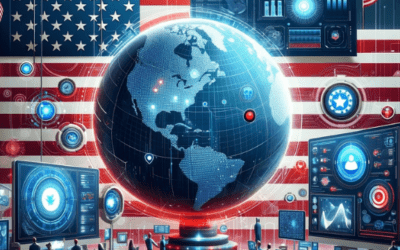
Software startups in DC face a candidate market shaped by the DMV’s unique geography and history.
After working with startups for 12 years, I can’t say there’s any other tech hub like the DC Metro Area. Software startups that don’t understand what makes DC’s tech community unique won’t be able to attract and keep top tech talent.
You’ll need to keep these 4 DC metro area quirks in mind as you decide whether DC is right for your startup. If you don’t pay attention now, you won’t be able to hire the software engineers and developers you need.
DC’s most experienced tech talent often have service, not product, oriented backgrounds.
When you’re building a new software product, you want a team that can work in quick sprints, while keeping end-users in mind. If you hire the wrong people, they’ll create bottlenecks, confusion, and missed deadlines.
The DMV isn’t just the nation’s capital, however. It’s long been home to plenty of government services and government contractors. Its rapid rise in tech startups only really started a few years ago. As a result, software engineers here often have backgrounds in government services and similar service-based environments.
Moving from a service-based organization to a product-based environment can be a big adjustment. Engineers are often used to government services projects, such as transitioning a large financial system for a government agency, or switching from small project to small project. Many software engineers with this background might never have spent several years building a single product.
Developing a product typically requires a different skillset than working in a government services environment. DC software startup recruiters and hiring managers need to know how to find software engineers with product experience. Otherwise, they’ll have to be able to ask the right questions to determine if engineers can make the transition from service to product environment.
The DC metro area is much more dispersed than other tech cities.
Though remote work and shared coworking spaces are increasingly common, office buildings remain the primary locations where many of us spend our workdays.
As popular as offices can be, the DMV metro area covers large portions of two states and an entire nation’s capital. It’s large, crowded, and congested with traffic. As a result, tech talent is often dispersed into small pockets spread out between parts of DC proper, Arlington, Baltimore, Bethesda, Tysons, Reston, Leesburg, and other places.
Due to this congestion, engineers usually don’t want to commute more than 25 miles in the DC area. Unless your company headquarters is located in the right location, you won’t find the right people that are close to your office.
If you’re planning to scale a large team of software developers in DC, you’ll need to conduct a talent assessment of the area surrounding your future offices before you move in. Otherwise, you’ll probably need to offer telecommuting days during the week, be open to hiring engineers who are language agnostic or build with a more flexible technology stack.
Be prepared to see a lot of older programming languages.
Rust is the most-loved programming language today, according to a recent survey by Stackoverflow. Go was the brainchild of top innovators at Google. Languages like Go, Rust, and Swift are winning developers’ hearts in Silicon Valley.
However, many larger government organizations’ systems have been built out with legacy code. Java is entrenched in many federal government systems, and you’ll see a lot of Python as well. As a result, newer programming languages haven’t yet gained as strong of a foothold in the DMV region.
That’s why we like to begin any engagement with a Vacancy Analysis Test to help startups understand what the candidate market looks like. If you’re not willing to take these steps before you start the hiring process, you won’t have a realistic view of whether you can find talent locally.
DC Startups are often B2B, not B2C, and there’s not a lot of consumer-focused mobile app development (yet).
Silicon Valley is known as the origin of some of our favorite consumer technologies and mobile apps. But startup products in DC are more often aimed at helping companies manage and protect data.
While there are definitely some consumer-focused startups to watch out for, the biggest growth we’ve seen has been in business-to-business products. Two of the most common verticals we see growing in the DMV are Cybertech and Healthtech.
After all, the DMV is home to organizations like the National Institute of Health (NIH), prestigious hospitals such as Walter Reed National Military Medical Center, and universities like Johns Hopkins and the University of Maryland. UMD, for example, boasts one of the top cybersecurity programs in the country and is opening its new Discovery District in Crystal City. Programs and organizations like these make DC a great place for B2B startups to find clients and tech talent.
At the same time, it can still be difficult to find experienced Android or iOS developers in the region. Companies focused on building products in the B2B space often don’t place as much emphasis on mobile development.
If you’re building a software product for consumers here, you’ll need to be able to navigate a competitive market.
So what is the future of the DC software startup space?
The DC region startup and technology scene is unlike any other, but that’s exactly what makes it one of the nation’s fasting growing tech hubs. The region is home to the federal government and the new headquarters for companies like Amazon. It’s full of prestigious hospitals and top universities with amazing programs in healthcare, cybersecurity, and entrepreneurship.
Startups here will have to be flexible, innovative, and remote work-friendly, But, they’ll have access to unique resources, a rapidly expanding talent pool, and a highly engaged community of creatives and entrepreneurs.
DC can be a perfect location for high-growth software startups, but you need to understand what makes the city unique from a tech standpoint. That’s why at hatch I.T., we aim to bridge the gap between local tech startups and the unique engineering & product community across the DMV region.


